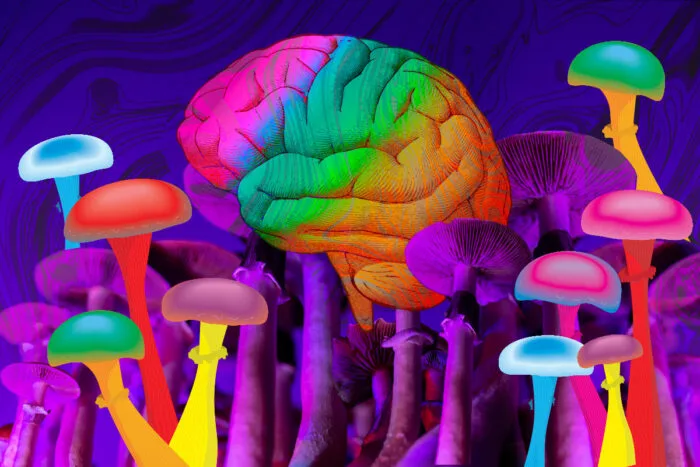A landmark study recently published in the journal Scientific Reports under the umbrella of Nature, offers new insights into the potential benefits of psychedelics on mental well-being during the challenging circumstances of the COVID-19 pandemic.

The research, conducted collaboratively by several institutions, including ICEERS, Universitat Rovira i Virgili, the University of São Paulo at Ribeirão Preto, and the Autonomous University of Madrid, reveals a positive correlation between the use of psychedelics and indicators of psychological well-being.
The study employed a longitudinal and transcultural approach, incorporating various disciplines such as psychology, anthropology, and public health. Researchers surveyed a diverse participant base to ensure the findings have global applicability. Advanced data analysis techniques were used to interpret the results.
The paper establishes the mental health crisis exacerbated by the COVID-19 pandemic as a significant public health concern. It highlights that mental health issues like anxiety, depression, and PTSD have increased globally. The introduction also points out that psychedelics are increasingly being viewed as potential treatment options for mental disorders, with some even undergoing Phase-III clinical trials.
“The study serves as a timely contribution to the growing body of evidence supporting innovative mental health treatments,” says Dr. José Carlos Bouso, lead researcher of the study. “We need medical and cultural frameworks that not only effectively address mental health issues, but also help prevent them. The clinical trials currently underway are focused on alleviating the disease, while our study explores the key consideration of prevention.”
In this longitudinal study, 2,971 participants were initially assessed with 1,024 remaining after the first follow-up (two months later) and 455 at the final follow-up (six months later). Participants completed an international online survey in Spanish which was later translated into Portuguese and English. The baseline assessment began in April 2020 during the widespread COVID-19 lockdowns, with various confinement measures in place during follow-up. Researchers used snowball sampling, mainly in Spain and Brazil, distributing questionnaires through personal contacts and social media. The survey was also shared on academic platforms and in relevant online communities.
People with experience with psychedelics exhibited consistently elevated psychological well-being and registered lower scores on psychopathology scales, both during their initial assessment and in subsequent follow-up evaluations. The disparity in these measures became more pronounced when users were stratified based on their usage frequency.
The study found that even individuals grappling with significant psychological distress exhibited noteworthy progress in post-traumatic growth. While they generally scored lower across all growth scales, those who maintained a consistent pattern of psychedelic use had significantly higher post-traumatic growth scores. These findings underscore the complex interplay between psychedelic drug use, psychological well-being, and post-traumatic growth.
The study calls for further research to explore the potential applications of psychedelics as protective tools for improved mental health. The findings have the potential to contribute to policy reform that allow for more extensive studies and therapeutic applications of these medicines.
The full abstract of the study can be found below:
The COVID-19 pandemic has had a devastating impact on the health and wellbeing of the global population. This paper presents the results of a longitudinal transcultural study that was begun at the peak of the pandemic (in April, 2020). An online survey was used to collect data from English-, Spanish-, and Portuguese-speaking participants. The survey collected information about sociodemographics, lifestyle activities, COVID-19-related circumstances, and drug use (with an emphasis on hallucinogenic drugs), as well as involving psychometric questionnaires. Users of hallucinogenic drugs had higher psychological well-being and lower scores on psychopathology scales, both at baseline and during follow-ups. This difference was larger when users were distinguished by frequency of use, as regular users scored higher on psychological well-being and lower on psychopathology scales. Subjects with more psychological distress had lower scores for all scales of post-traumatic growth, but if they were regular hallucinogens users, they had higher scores for post-traumatic growth. When comparing the results between cultural contexts, heterogeneous results were obtained. There were more English-speaking regular users of hallucinogenic drugs. Further research should analyse the potential role of hallucinogens in large-scale catastrophes, with a special focus on post-traumatic growth.






